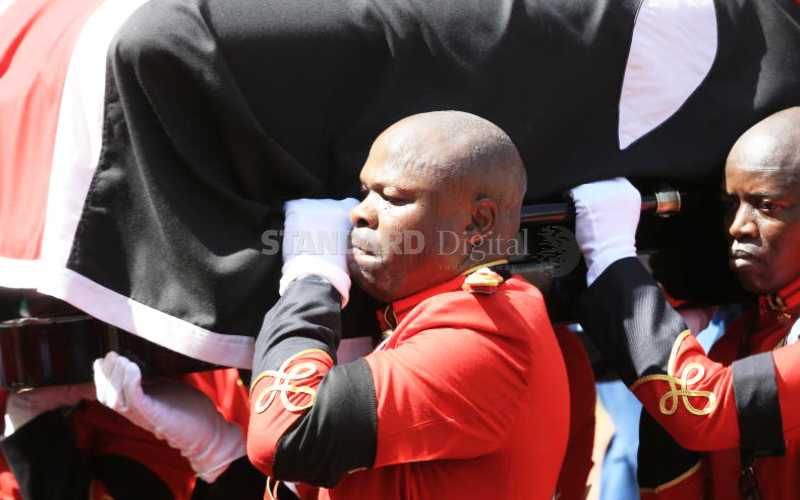×
The Standard e-Paper
Stay Informed, Even Offline

Pall bearers carry the remains of former President Daniel Moi at Nyayo Stadium during the funeral service on February 11, 2020. [Standard]
The year was 1987, the setting, a fundraising event presided over by the Head of State. Onyango, a local businessman of dubious distinction, walked to the presidential dais.